Who will be the next leaders of the Oklahoma House and Senate? Battles are already underway
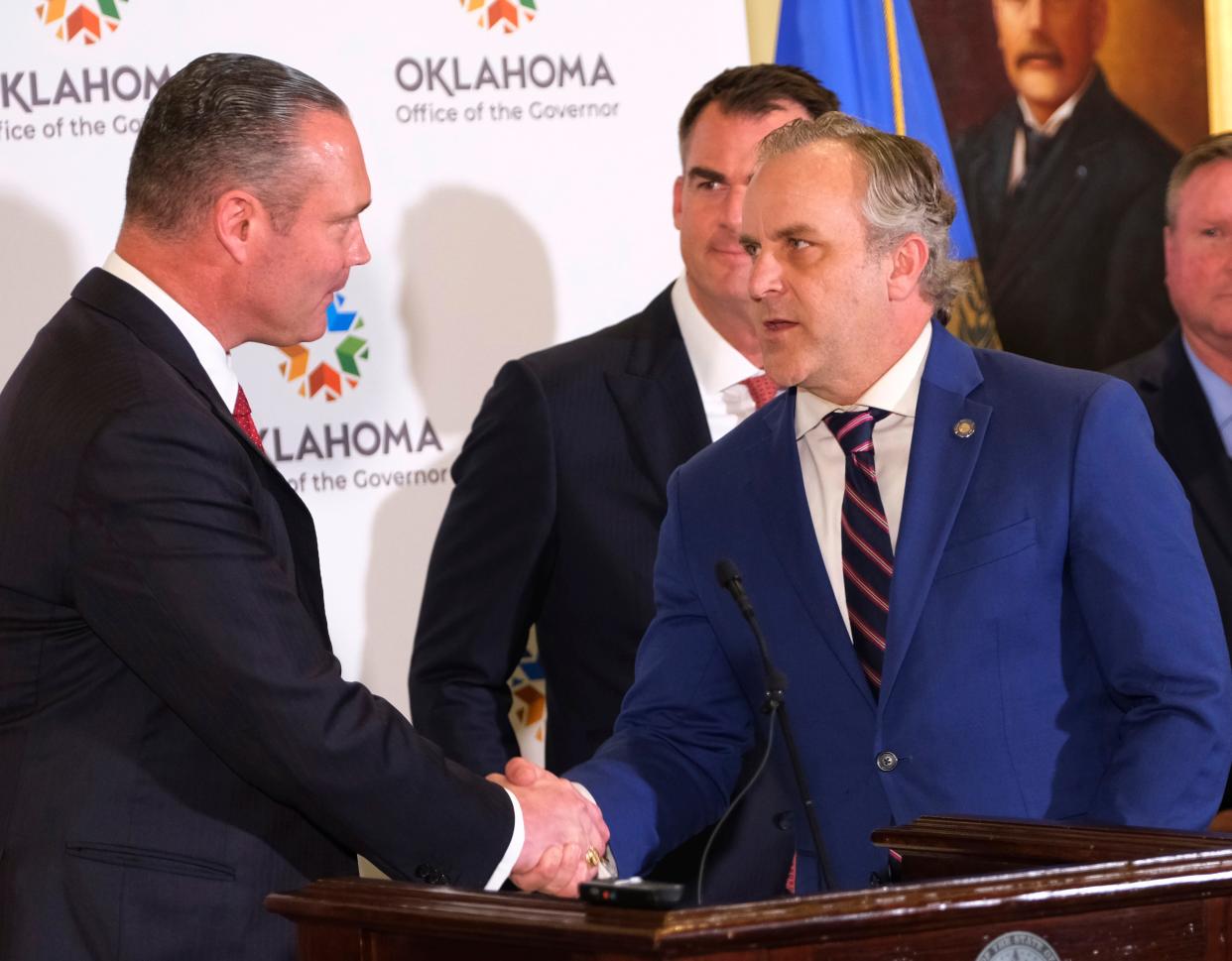
When the Oklahoma Legislature returns to the Capitol on Monday, it won't be just to argue about policy and taxes and review the mountain of new legislation waiting for them.
There's another fight going on — behind the scenes — that could set the direction for both the House and Senate for the next several years: Who will be the next speaker and who will be the next Senate president pro tempore?
Call it pick the new guy — or gal.
This year, the second session of the 59th Oklahoma Legislature will be an unusual one — it's the last session for both House Speaker Charles McCall and Pro Tem Greg Treat.
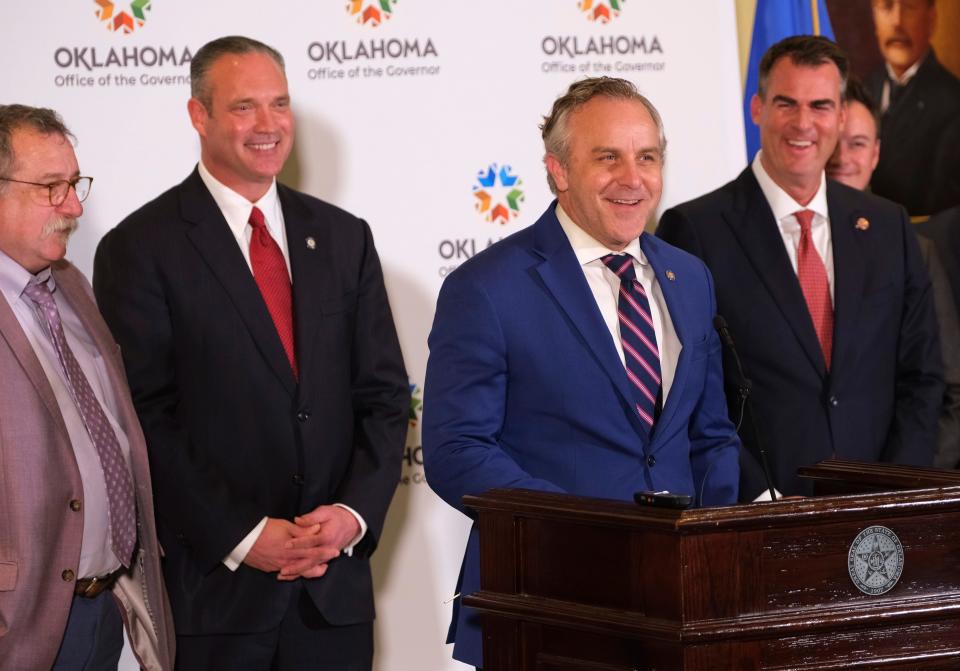
And, yes, the fight to succeed both already has started.
Forced out of office due to term limits, the days of a House speaker or Senate president pro tempore who serves for 25 years are long gone. Today, Oklahoma lawmakers are limited to 12 years and, usually, the first two to four years in office are spent learning the process and making contacts. This means the tenure of a legislative leader is limited and the jockeying for positions starts early.
In the House, McCall, the longtime speaker, steps aside at the end of the session. The most likely contender to succeed McCall is Rep. Kyle Hilbert, the speaker pro tempore. Hilbert, a Republican from Bristow, was first elected in 2016 and won't be termed out of office until 2028.
More: Tax cuts, tribal relations issues could dominate upcoming 2024 legislative session
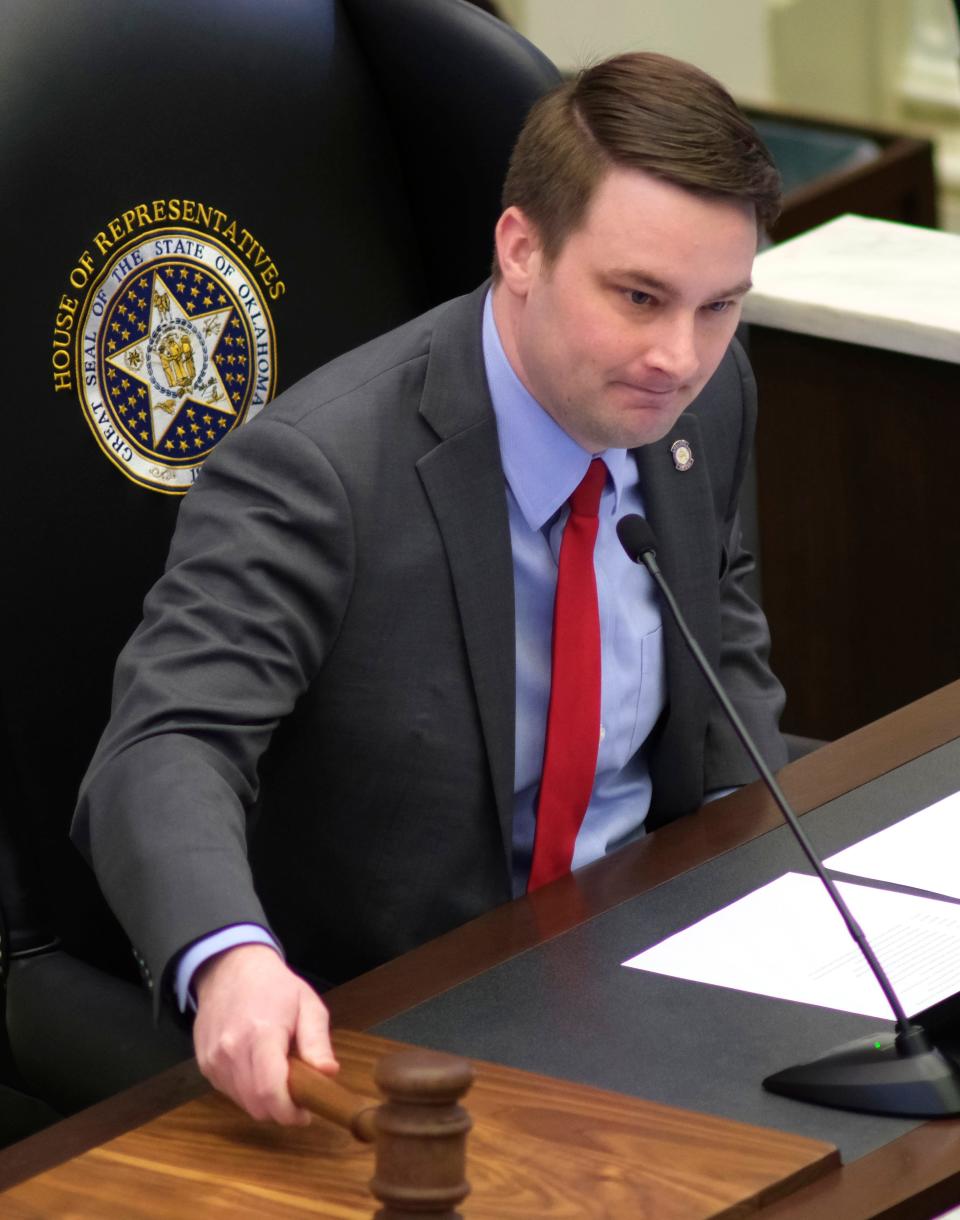
In the Senate, the odds-on money is on Majority Floor Leader Greg McCortney, a Republican from Ada.
While the majority floor leader's post is often a stepping stone for a promotion, for McCortney, it's not a sure thing. At least two other senators — Casey Murdock, R-Felt, and David Bullard, R-Durant — have made moves toward the top spot.
But getting either post won't be easy.
Key skills of legislative leadership
Becoming the next speaker or president pro tempore starts early. It involves commitment, understanding and better-than-average people skills. There's lots of travel, a billion telephone calls and a never-ending stream of problems.
"The guys who you want to vote for you are looking for two or three things," said former Senate Pro Tempore Cal Hobson, a Democrat from Lexington. "They want to know if you'll keep your word. They want to know just how much you know and they want to have access. That's usually what they are looking for."
Oh, and those people skills help, too.
A lawmaker who rises to the top leadership post has, more than likely, traveled and campaigned for others, helped freshman lawmakers learn the ropes and served as a mentor for others in some way.
"Understanding your fellow lawmakers and serving as a resource is a big plus," Hobson said.
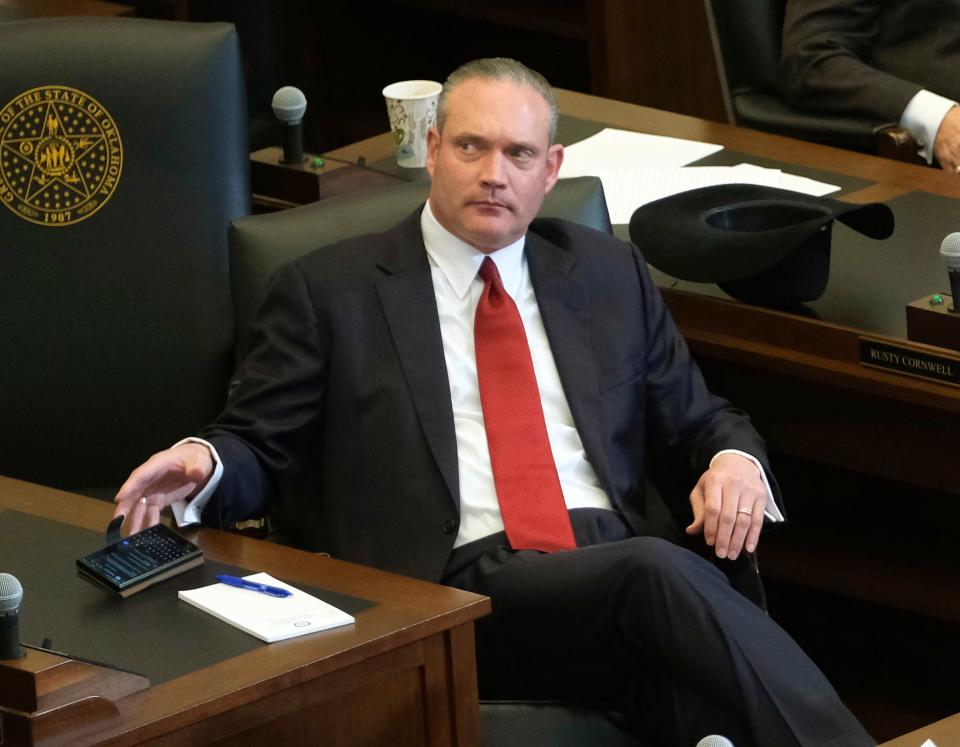
Still, state politics, even though it's on a larger scale than, say, a school board, is a local endeavor.
"You have to have connections into many groups," he said. "You have to have people in each group that are supportive and that will help you. You have to connect and you have to understand."
The state's current legislative leadership does this well, says James Davenport, a Rose State College political science professor. Both Treat and McCall have pushed their respective bodies forward, and both understand well what it takes to serve as a legislative leader,
"They both have kept their caucuses on track," Davenport said. "That's not easily done."
Political supermajorities come with bigger problems and often, the majority develops fault lines. Such is the case in Oklahoma. But even with factions that have caused them difficulty, both Treat and McCall have managed their respective bodies well, Davenport said.
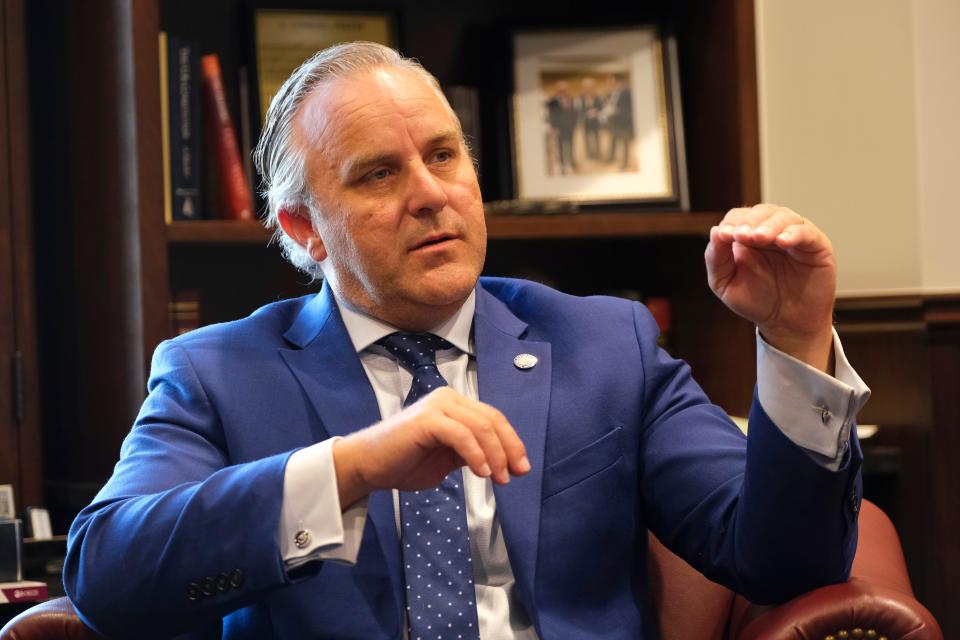
"Both the House and Senate have factions," Davenport said. "Even in caucus not everyone agrees, and sometimes it gets difficult. The key is to keep the caucus moving forward."
Hobson, the former pro tempore, calls that "reading the room" and understanding your people.
"I remember when I made a bid to be pro tempore, one of my opponents told me he would destroy me if I didn't get out of the race," Hobson said. "I stayed in and won. Later that guy stopped by my desk, knelt down and offered me his hand. He said, 'you're my pro tempore.'"
Loyalty, too, Hobson said, can make or break a leader.
"It takes a lot to be in charge of a legislative body," Hobson said. "Your best day is the day you're elected to the post; after that, it's all downhill."
This article originally appeared on Oklahoman: Who will succeed Charles McCall and Greg Treat in Oklahoma House, Senate?

